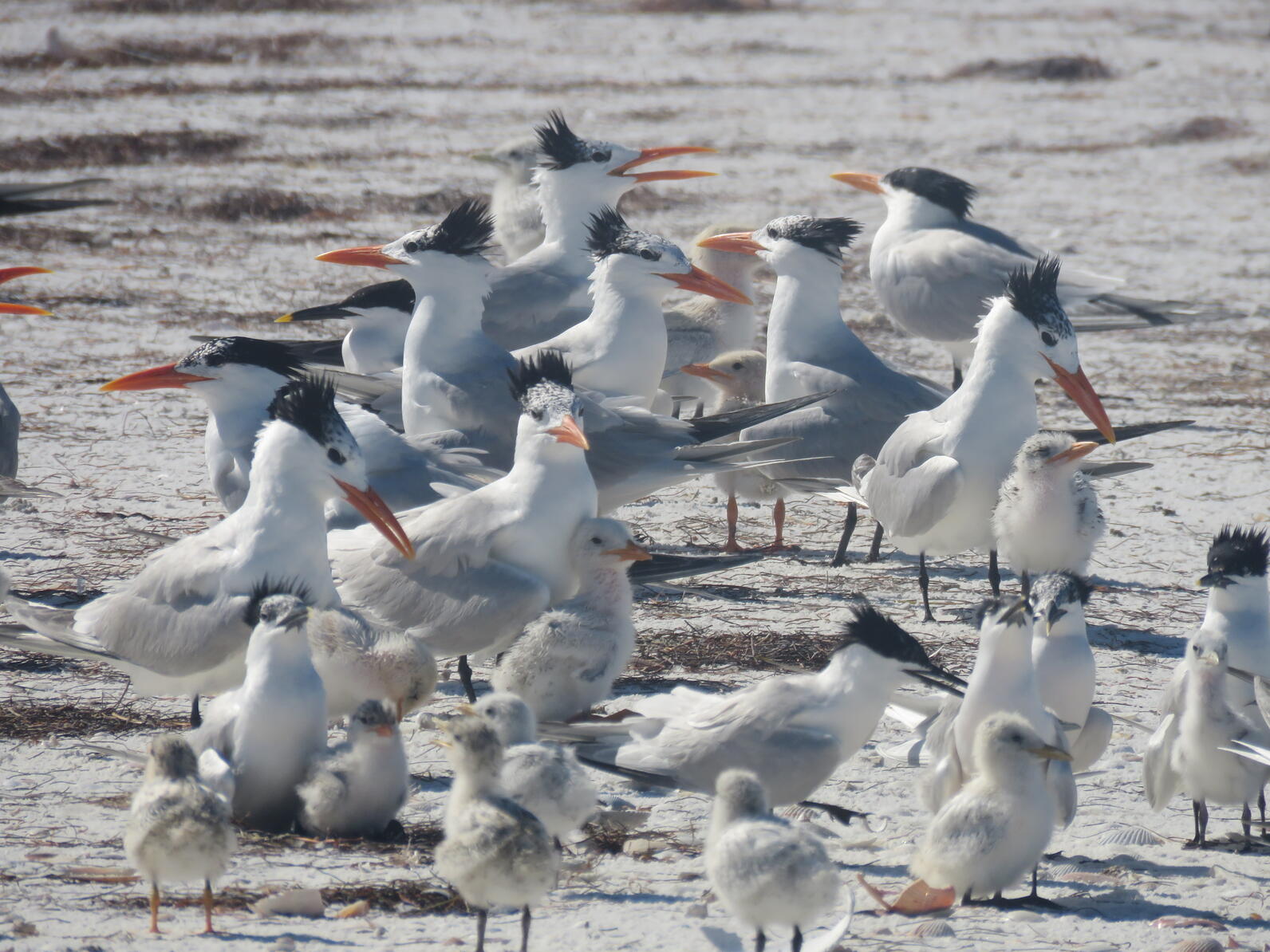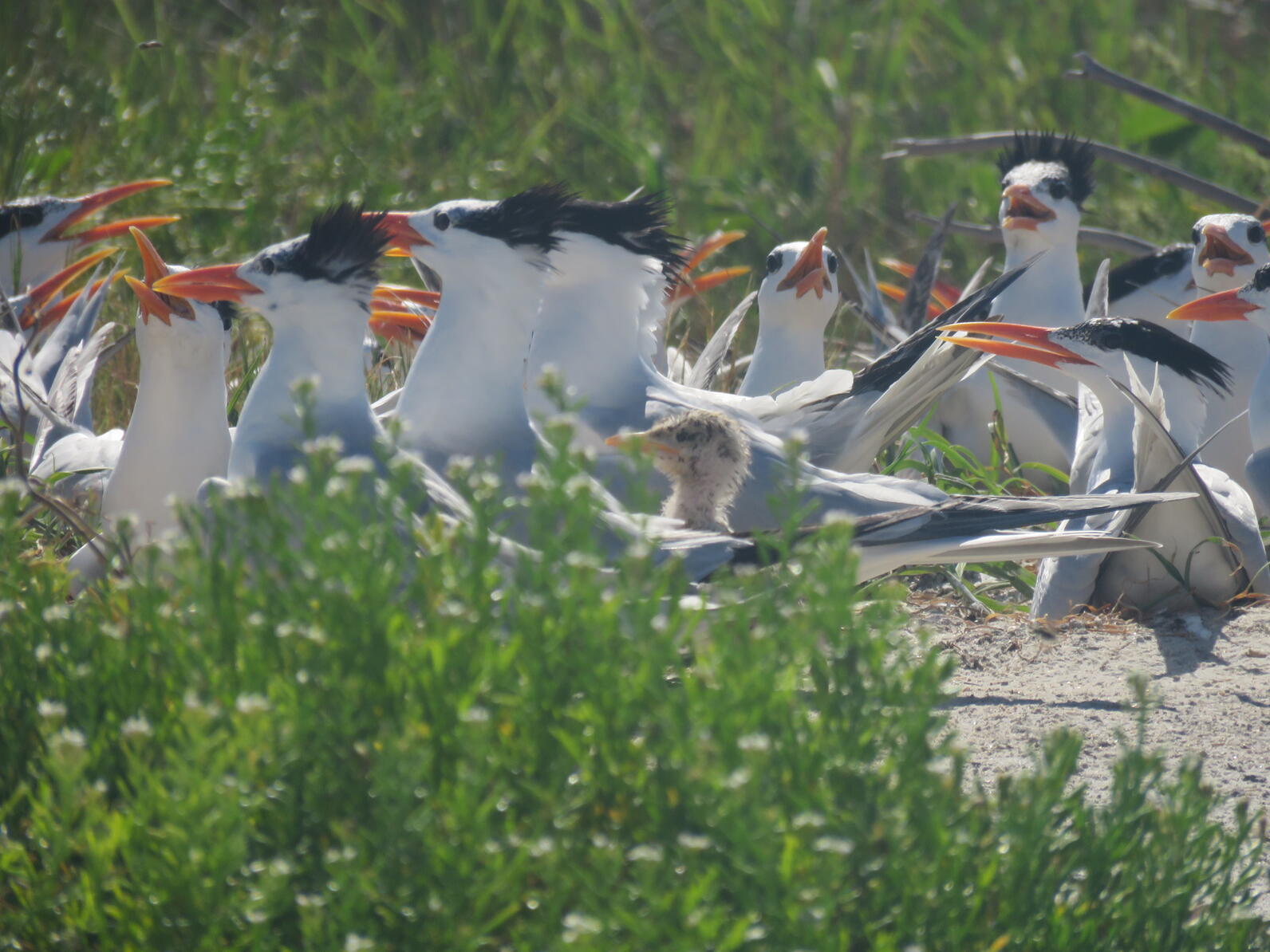As the Three Rooker Island Steward Coordinator, my work commute is a little different than most. It’s not often that an office consists of a number of islands in a state park system, and the only way to move between them is with the help of a Carolina Skiff. Yet, these islands are some of the last few great seabird colony sites in central Florida, and the numbers of birds still leaves me awestruck. I never would have thought that just a few miles from historic coastal towns like Tarpon Springs, with its incredible Greek cultural identity, or Dunedin, a once important trading town, that thousands of birds would be raising their young. The first time I visited the islands it felt like I was in the middle of a nature documentary, with thousands of birds on one island, and miles of empty beach on another. It wasn’t until the weekend that I discovered what these birds have to contend with.
The offshore islands of Anclote Key Preserve State Park may be great habitat for nesting birds, but it is also great habitat for people to enjoy themselves. On an average weekend, there are typically 100 boats on an island that is a third of a mile long, yet continually shrinking. Until about eight years ago, Three Rooker Islands formed a single, continuous horseshoe shaped island with plenty of space for both nature and boaters to enjoy. However, storms have disconnected the two, and the islands have not shown any sign of increasing in size. As a result, more and more conflict between birds and boats are occurring.

Because these islands are managed by the Florida State Park System, temporary fencing has been placed where state-Threatened species such as the American Oystercatcher, Least Tern, and Black Skimmer have nested, and where thousands of Royal, Sandwich, and Caspian Terns currently nest. Stretches of beach have been fenced off with “area closed” signage to prevent beachgoers from walking through the nesting colonies. While I have noticed that this fencing and the intimidating number of birds have done well to prevent people from walking through, there are still times when my volunteers have to intercept walkers to point out that walking through is not allowed.
Beyond the threat of people disrupting the nesting birds, it is what people bring to the beach that really gets the birds nervous. Although Three Rooker Islands are pet-free, I have to talk to an average of 10 groups every weekend to let them know that their dogs should not be on the island in order to protect vulnerable birds. In fact, the birds think dogs are predators!
But perhaps the biggest disruption that boaters bring to the islands are fireworks. These pyrotechnics may be beautiful to people, but they are terrifying to our nesting birds. When the birds get frightened, they flush and all fly at once, leaving the chicks on the ground to run in fear. This results in chicks getting separated from their parents, leaving them vulnerable to infanticide from other birds when they land again, a sad fact of nature. The best solution to this problem is simply not bringing fireworks to state parks. They are much better enjoyed during a professional, public display.

Many people are extremely interested in the birds and are very happy to respectfully share the beach. I have had many people come by to thank my volunteers and I for what we do, and most interactions with boaters end with them having a new appreciation for our beloved birds. If we continue to spread our passion for our feathered friends, I am sure that we will be able to continue sharing our beaches and islands with Florida birds long into the future.
Remember, to make our beaches safer for birds:
· Give nesting birds at least 100 feet of distance or as much as possible. Signs or people will alert you to these areas, but some birds haven’t settled down to start nesting yet and may just look like they are resting in the sand. Please avoid walking through flocks of birds on the upper beach.
· If pets are permitted on beaches, keep them leashed and well away from birds.
· Remove trash and food scraps, which attract predators that will also eat birds’ eggs and/or chicks.
· Do not drive on beach dunes or other nesting areas.
· Attend a municipal fireworks show instead of deploying personal fireworks.



